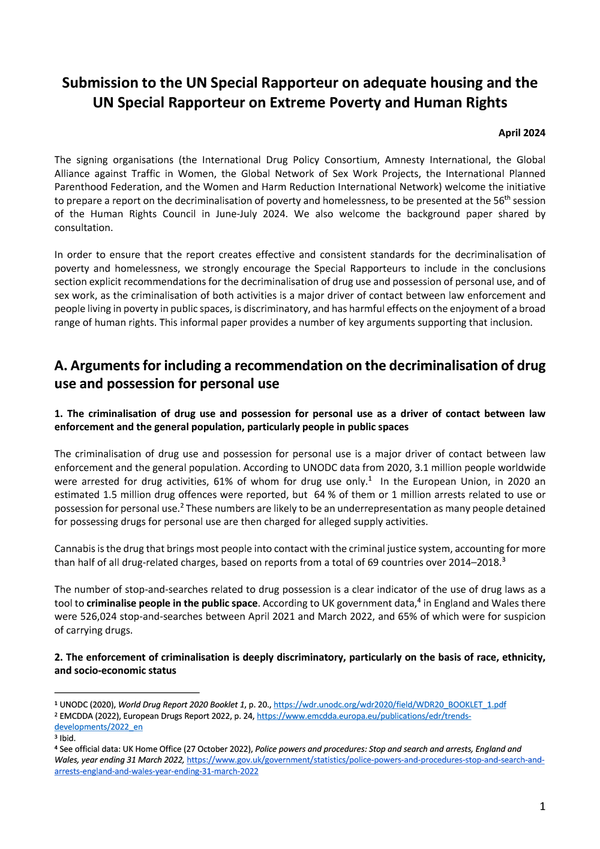Descriminalizar el consumo de drogas y el trabajo sexual para poner fin a la criminalización de la pobreza y la falta de vivienda - Contribución a Relatores Especiales de la ONU
IDPC y otras organizaciones alientan a reconocer los efectos nocivos de la criminalización del consumo de drogas y el trabajo sexual en relación con la acción policial sobre las personas que viven en la pobreza en espacios públicos. Más información, en inglés, está disponible abajo.
The signing organisations (the International Drug Policy Consortium, Amnesty International, the Global Alliance against Traffic in Women, the Global Network of Sex Work Projects, the International Planned Parenthood Federation, and the Women and Harm Reduction International Network) welcome the initiative to prepare a report on the decriminalisation of poverty and homelessness, to be presented at the 56th session of the Human Rights Council in June-July 2024. We also welcome the background paper shared by consultation.
In order to ensure that the report creates effective and consistent standards for the decriminalisation of poverty and homelessness, we strongly encourage the Special Rapporteurs to include in the conclusions section explicit recommendations for the decriminalisation of drug use and possession of personal use, and of sex work, as the criminalisation of both activities is a major driver of contact between law enforcement and people living in poverty in public spaces, is discriminatory, and has harmful effects on the enjoyment of a broad range of human rights. This informal paper provides a number of key arguments supporting that inclusion.
